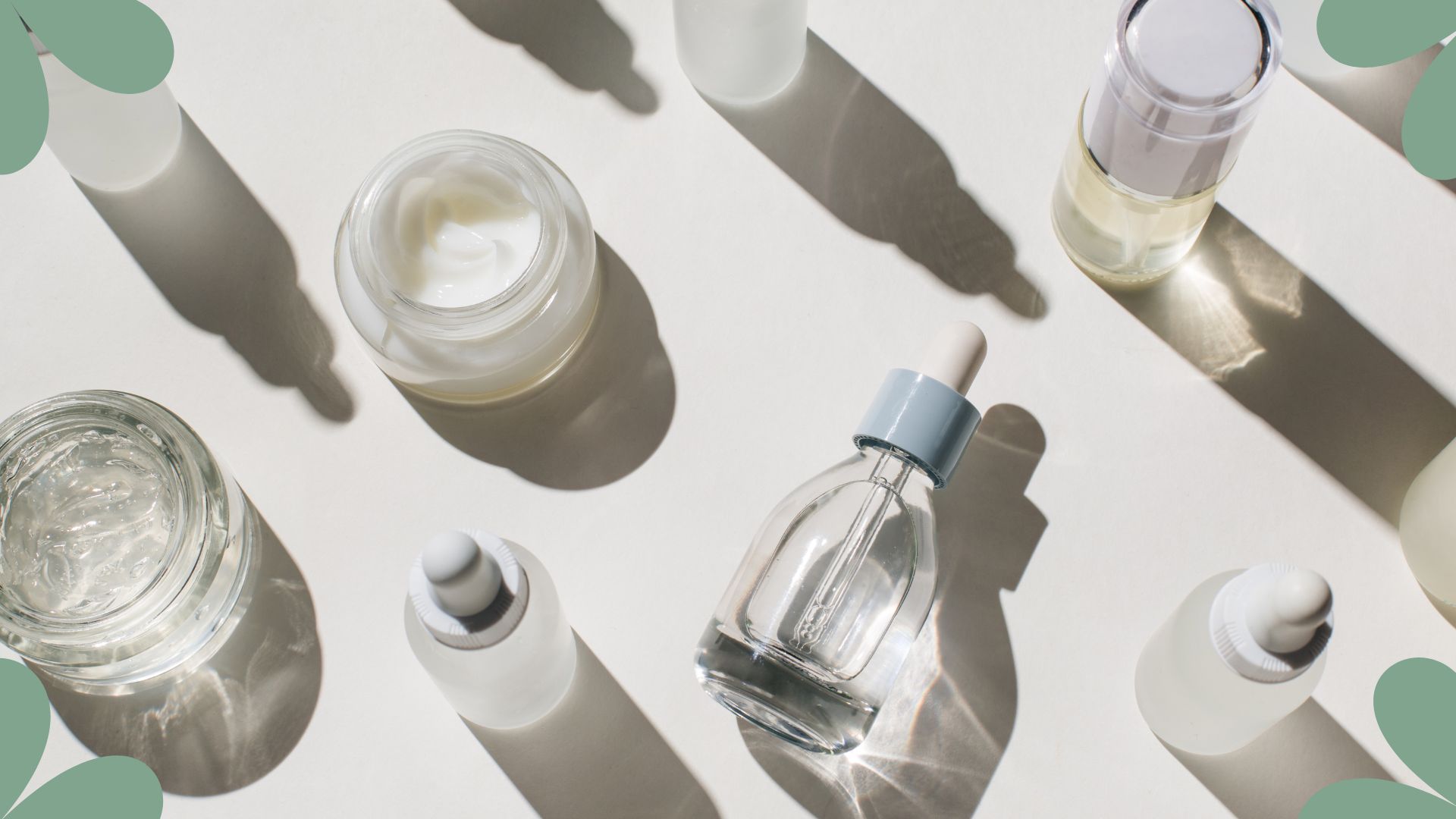Retinol vs tretinoin - differences, benefits and how to use them in your routine
Wondering which is best in the retinol vs tretinoin debate? We’ve got the full low-down on both from an expert dermatologist


Not sure if you should be using retinol vs tretinoin? I'm here to help. These two forms of Vitamin A can give very different results, so it’s wise to ensure that you’re using the best ingredient for you.
While many of us understand the power of the best retinol cream, It’s important to know how to use retinol and other forms of retinoids correctly because they’re quite potent. This brings me to the other factor that comes into this discussion - retinoid vs retinol. Often, retinol is the catch-all term for products that contain any form of Vitamin A, but not all are created equal.
Allow me to put on my metaphorical lab coat and talk you through the retinol vs tretinoin debate. To deepen my understanding, I spoke to Dr Malvina Cunningham, a Dermatologist for the prescription-based brand Skin + Me, for her expert take. Let's get stuck in.
Retinol vs tretinoin: the detailed lowdown
What are tretinoin and retinol?
In super simple terms, they're both different forms of Vitamin A. For the science bit, Dr Cunningham breaks it down for us.
- Retinol: "Is a part of the retinoid, Vitamin A family. Weaker retinoids like retinol need to be converted by skin enzymes to retinoic acid (tretinoin) which then exerts its effects via retinoid receptors found on skin cells. The conversion of retinol to retinoic acid is slow and varies between individuals.”
- Tretinoin: "Works to accelerate new skin cell growth, speeding up the removal of dead skin cells and debris that can block pores. It works to repair sun-damaged cells and boosts collagen production - a protein that acts as scaffolding for your skin."
What are the differences between retinol vs tretinoin?
As Dr. Cunningham explains, the main difference between retinol vs tretinoin is that, tretinoin works more efficiently. "Retinol needs to be converted by enzymes in the skin into retinoic acid for it to have any beneficial effects. Tretinoin is retinoic acid, so is far more potent than retinol and more effective." Essentially, retinol needs to become tretinoin to work - using straightforward tretinoin basically means you're cutting out the conversion step, meaning it'll give you results quicker.
She continues, "It's also worth pointing out that retinol is extremely unstable and will often be degraded, even before it reaches your skin. Prescription tretinoin has to go through stringent testing to prove it has the correct amount of tretinoin in the product."
The other difference is that tretinoin isn't as readily available as retinol, which can be found in all forms of skin care products, from serums, masks, and moisturizers to cleansers. Tretinoin can only be used through a prescription, whether that's through your doctor, a dermatologist, or one of those nifty virtual dermatologist services like Skin + Me or Dermatica (our Skin + Me review has all the details) This inaccessibility is a downside for convenience, but it's for a sensible, skin-safety reason.
Sign up for the woman&home newsletter
Sign up to our free daily email for the latest royal and entertainment news, interesting opinion, expert advice on styling and beauty trends, and no-nonsense guides to the health and wellness questions you want answered.
What are the benefits of both?
Retinoids are often touted as a needle-free alternative to Botox (although neither actually relax line-causing muscles as injectable toxins do) and both of these ingredients have similar benefits as they're both forms of the same Vitamin A family - they just work in different ways. Vitamin A's main job is to help cells regenerate quicker, which can lead to:
- Brightening complexions
- Plumping up skin
- Improving skin texture
- Clearing acne
- Improving the appearance of pigmentation
What are the downsides of using tretinoin vs retinol?
The main downside for tretinoin in the retinol vs tretinoin debate is that it’s prescription-only, so you won’t get instant ‘add to basket’ satisfaction.
When it comes to the actual effect that tretinoin has on the skin, Dr. Cunningham warns that it’s not always a seamless ingredient to add to your skincare routine. "You may experience peeling and irritation, including dryness, redness, burning, and stinging. This is usually temporary and lasts while your skin is adjusting to all these changes that the retinoids are causing - a process that’s been referred to as retinisation."
You can minimize the chance of irritation by easing in slowly like you would with any active ingredient. Start with a low concentration and use it every few days, rather than going in all-guns-blazing with an intensive hit, daily. This applies to how often you should use retinol as well as tretinoin - start with a low concentration and slowly build up your tolerance before going for a higher level. Your skin will thank you.
How to use tretinoin
If you're looking to swap your retinol for tretinoin, you can use it in the same way you'd use retinol - use it in the evenings, and always follow up with your best facial sunscreen the morning after as it can make you more susceptible to sun damage.
"Retinoids can cause the skin to become more sensitive, so it’s important that the other products in your routine protect and support your skin" advises Dr Cunningham. "I always recommend using tretinoin alongside a simple, stripped-back skincare routine consisting of a moisturizer, cleanser, and sunscreen to support your skin barrier. If you do find your skin is sensitive to tretinoin, you can buffer it by using a moisturizer first."
Dr. Cunningham finishes off with a few warnings on the intensive ingredient. "Tretinoin is not suitable during pregnancy or if you are breastfeeding, and never double up on retinoids. Whether you can use other ingredients such as AHAs/BHAs will be down to the individual and should be gradually reintroduced." As you would with any new active ingredient, proceed with caution.
Tretinoin vs retinol - our beauty editor’s verdict
So, where do I stand on the Retinol vs Tretinoin debate? I've used and recommended both ingredients over the years, and can certainly vouch that there are plusses and minuses to both.
Retinol is a great, entry-level retinoid that's not too intimidating, and really will improve the appearance of wrinkles, pigmentation, and dullness. That is - as long as you're using the right version for your skin. To cut a long beauty lesson short, check the percentages, and stick to serums and moisturizers rather than masks and cleansers - there's no point using actives that end up washed down the plug hole.
When it comes to tretinoin, there's less fuss to contend with - both in the products themselves and in the way it instantly works. I also respect the seriousness of having to go through a dermatologist before you can use it. This means the version you're using is good, strong stuff that should make a difference to your skin quicker. This downside is purely a convenience factor, which is also totally fair.
If I had to pick one to use solely, I would go for tretinoin, purely because of the effect it had on my troublesome skin when I was struggling with acne. The difference it made was almost instant, so if you ask me, that minor extra step of going through a derm is 100% worth it for the quick results, and personalized care.
But if you're happy with the retinol in your routine, there's absolutely no need to swap to tretinoin. Just because an ingredient is surging in popularity, it doesn't necessarily mean it's right for you, or that you need to use it. I'm always amazed how much of my skincare advice can simply boil down to – if it ain't broke, don't fix it.

Rhiannon Derbyshire is the Senior Beauty Editor for Woman & Home.
She started interning for glossy magazines in 2011 while working alongside her Fashion Journalism degree. There, she was lured to the beauty desk, seduced by red lipsticks, posh shampoos, and every skincare product imaginable. 10+ years into her career, she now writes about all things skincare, haircare and makeup for six national titles and interviews celebrities, experts and brand founders. She oversees and judges products for the Woman & Home skin, hair and beauty awards, testing hundreds of products yearly.
With 3A curls, Rhiannon specialises in writing about curly hair routines and has a penchant for red lipsticks and minimalist skincare routines - with a bit of LED therapy thrown in.
-
 Need spring style inspiration? Jennifer Aniston proves a shirt dress is the most versatile item you can invest in
Need spring style inspiration? Jennifer Aniston proves a shirt dress is the most versatile item you can invest inIf you only buy one piece this weekend, make it a shirt dress
By Matilda Stanley Published
-
 Celebrities you never knew got their start as models, from Angelina Jolie's 'terrible' experience to A-listers who started as pageant queens
Celebrities you never knew got their start as models, from Angelina Jolie's 'terrible' experience to A-listers who started as pageant queensWhether it was just for a short time or it's how they got discovered for something else, these stars owe it all to striking a pose
By Jack Slater Published